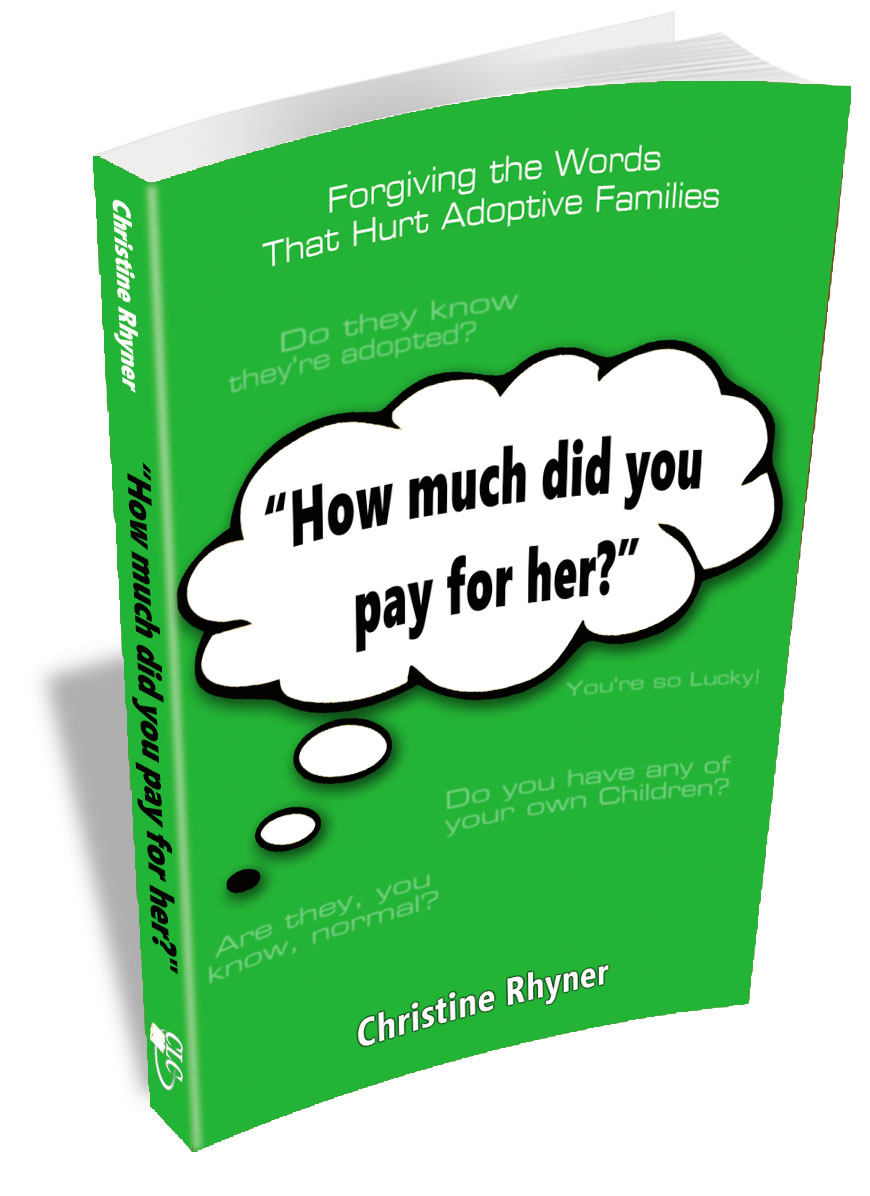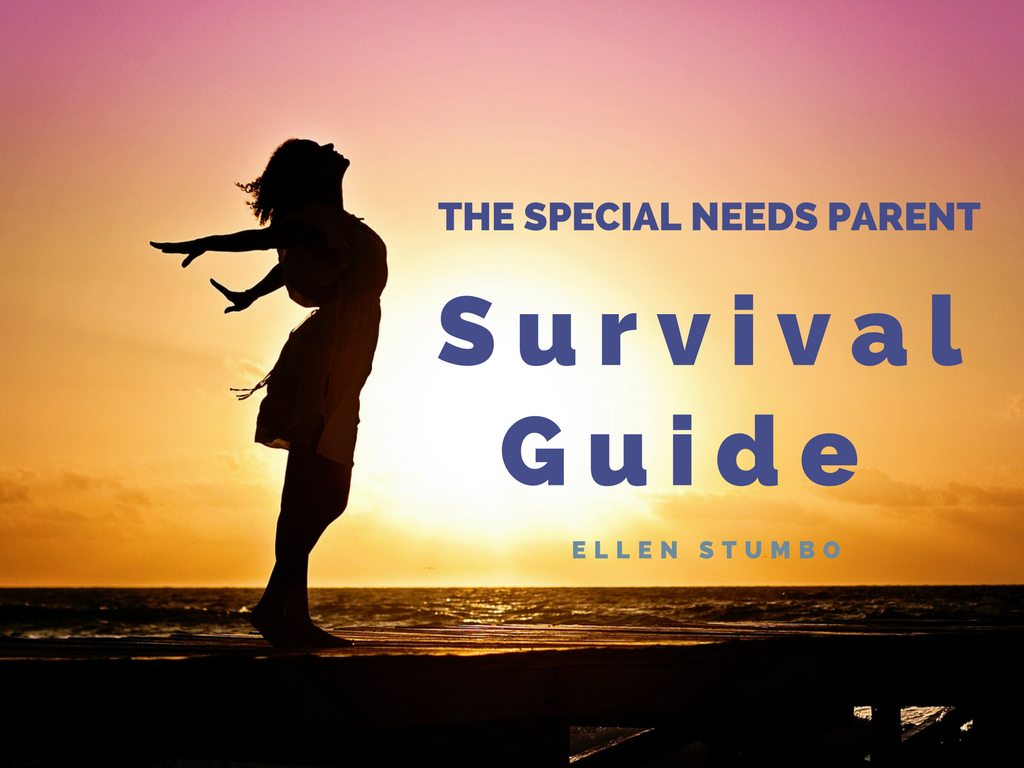
At a party for a friend, I was getting reacquainted with former coworkers.
Jim, an art director I had worked with at an advertising agency asked, “Do you have kids?”
“Sure,” I responded, handing him my wallet, open to two recent school photos of my son Lucas from Vietnam and daughter Olivia from China.
“Cute,” Jim said. “But do you have any of your own kids?”
There has got to be a better way to differentiate between biological and adopted children than by the use of this widespread reference. Do we even need to make a distinction? When I watch a TV program or read an article or book that describes a child as an adopted one—when there is no relevance to the story for them being such—frankly, it frustrates me.
The cavalier use of one’s “own” children versus “adopted” children sets many an adoptive parent’s teeth on edge. It makes them grind when the comparison is made in our children’s presence.
Of course this wasn’t the first nor would it be the last time someone asked this question. Each time this boundary is crossed, I feel the sting of being considered a “pretend” parent or less than a mom because I have not given birth. Worse yet, a physical pain and anger washes over me when my children are broadsided by an assault on their identities and sense of security as the “real” children of “real” parents. My first instinct is to protect Lucas and Olivia, assessing the need for “damage control” while reading their faces for reactions.
Even so, in most cases I respond to people’s inappropriate comments and questions about adoption. That’s because rather than modeling to my children that we should ignore those who use hurtful words about adoption, I want them to learn how to be confident about who they are and able to respond themselves when they are not with me.
I also choose to raise them with the understanding that forgiveness is an essential part of our faith which, throughout our lifetimes we will be required to exercise repeatedly and expediently. I want them to know that taking a moment to respond to someone who hurts them may give us a glimpse into another’s motivation for asking or saying something offensive. This is the first step towards developing a bit of compassion for another, which leads to extending grace, or letting them off our “hook.” When we pardon an offense we are capable of forgiving.
Answering tough questions also prevents children from stuffing negative feelings they may produce under the proverbial rug where they build. Failing to respond to others is a passive way of handling a personal affront. And as a parent with kids who are on the receiving end of more and different types of questions and comments than biological children, I don’t want them to take on other people’s messes and hang on to them. It’s my job to demonstrate how to clean those up.
Teaching kids to stick up for themselves and to have ready answers, even to dumb questions, empowers them. Those answers provide foundational tools for effective communication. It also helps children distinguish between people they should ignore because they pose a real threat and those who are insensitive but simply curious.
Providing an appropriate, calm answer in front of my kids defends them. Refusing to answer may make Lucas and Olivia wonder if Mommy in fact thinks any less of them. They deserve to know that the right answer to the question, “Do you have any of your own kids?” is “Yes!” They can neither effectively process the implications of the question nor our silence if we don’t respond. “These are my children,” is my standard response.
It can help to remember that because we stop to respond to someone, even if that person is a bit intrusive or offensive, we share with him a truth, or impart some needed information. Perhaps God will use that moment to plant a seed in someone’s heart that He wants to lead on an adoption journey.
If our hearts are drawn to the ministry of adoption, or to any cause or greater purpose than our own lives, we should ask God to place us in situations in which we may be used by Him to make a difference. It should come as no surprise to us then, if we have prayerfully asked Him to do this that we find ourselves in the midst of unexpected and even difficult moments in which He says, “Okay, now’s your chance.” Affronts may actually be opportunities to educate, enlighten, encourage and otherwise touch the lives of the non-adoption community in positive ways.
And, if this happens, perhaps more adoptions would take place, changing the lives of many of the staggering 175 million orphans worldwide. Then, not only would inappropriate and hurtful questions and comments directed at adoptive families fade, but as a society we could reduce the incredible numbers of children who are hungry, neglected, isolated, sick and at risk of premature death.
Excerpt from:
How much did you pay for her? Forgiving the Words That Hurt Adoptive Families by Christine Rhyner
Book Trailer: http://youtu.be/WhoehU5wH0E
Adoption website & blog: www.christinerhyner.com
www.Facebook.com/ChristineRhynerauthor
www.Twitter.com/ChristineRhyner
Special Needs Parents, Are You Surviving?
I created a guide with 13 practical ways to help you find peace in the midst of chaos, opt in to make sure you get a copy of this freebie!



Thank you for sharing this post…as an adoptive Mom, I have heard my share of intrusive questions…it’s great to know how others handle these odd situations. Love the grace-filled way this post communicates compassion for all involved.
Those questions can be so difficult to fend, but you are right. When we answer with grace and help educate others kindly, our children learn how to take care of the questions thrown their way too.